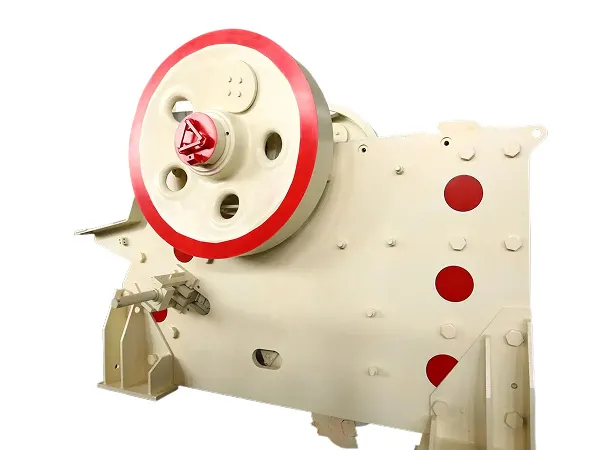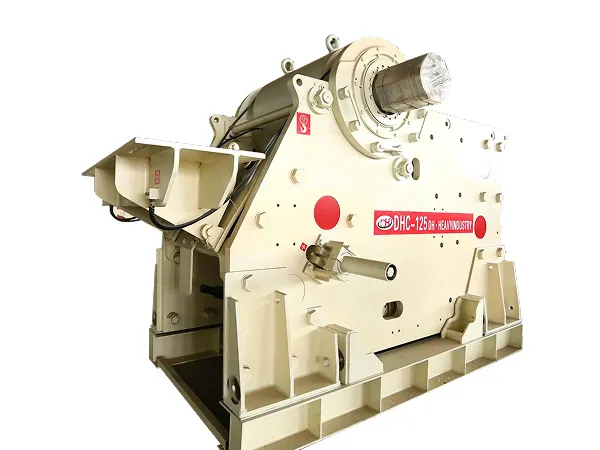A jaw crusher is a type of heavy-duty machinery commonly used in mining, construction, and demolition industries for reducing large rocks into smaller, more manageable sizes. Known for its simplicity, durability, and high efficiency, the jaw crusher operates by compressing material between a fixed jaw and a moving jaw. This mechanical pressure breaks down the material, making it ideal for primary crushing applications.The cost of a jaw crusher can vary widely depending on several factors, including size, capacity, brand, and features.

Here are the main factors influencing the cost of a jaw crusher:
Size and Capacity: This is the biggest factor.
Feed Opening Size: Larger openings (e.g., 42"x30", 50"x60") can take bigger rocks and process more material.
Throughput (Tons Per Hour - TPH): Higher capacity crushers cost significantly more.
Small/Lab Scale: Very small units for lab testing might cost a few thousand to $15,000.
Small/Medium: Crushers for smaller operations, recycling, or contractors might range from $30,000 to $250,000.
Medium/Large: Standard quarry or mining sizes can range from $150,000 to $800,000+.
Very Large/Primary: The biggest units for high-volume mines can easily exceed $1,000,000 and go up to several million dollars.
New: Highest cost, comes with a warranty, latest technology, and manufacturer support.
Used: Significantly cheaper (often 30-70% of new price depending on condition and age), but comes with risks (wear and tear, unknown history, potential for higher maintenance, no warranty).
Premium Brands: Companies like Metso, Sandvik, Terex (Powerscreen, Finlay), McCloskey often command higher prices due to reputation, build quality, technology, support network, and resale value.
Mid-Tier & Economy Brands: Numerous other manufacturers, including many from Asia, offer more budget-friendly options, but quality, longevity, and support can vary.
Stationary: Just the crusher unit itself, requires a foundation and integration into a larger plant. Generally the cheapest unit cost for a given size, but installation is expensive.
Portable (Wheeled Chassis): Crusher mounted on a wheeled chassis for easier relocation within a site or between sites. More expensive than stationary.
Track-Mounted (Mobile): Crusher mounted on tracks for high mobility on site. Usually the most expensive configuration due to the complex undercarriage and integrated power/controls.

Hydraulic Adjustment: For easier and faster setting changes.
Automation & Control Systems: Advanced monitoring and control increase cost.
Motor & Drive: Included motor, horsepower rating, VFD (Variable Frequency Drive).
Wear Parts: Quality and type of manganese steel used for jaw plates.
Feeders, Hoppers, Conveyors: Is it just the bare crusher, or does it include integrated feeding and discharge components?
Small Used Portable Jaw: $40,000 - $150,000+
Medium New Stationary Jaw (Bare Unit): $150,000 - $500,000+
Medium New Track-Mounted Jaw: $300,000 - $800,000+
Large New Stationary Jaw (Bare Unit): $500,000 - $1,500,000+
Large New Track-Mounted Jaw: $700,000 - $2,000,000+
Define Your Needs: What material are you crushing? What is the maximum feed size? What output size do you need? How many tons per hour? Do you need mobility?
Contact Suppliers: Reach out to manufacturers and dealers (both new and used) with your specific requirements.
Get Detailed Quotes: Ensure quotes specify exactly what is included (crusher, motor, chassis, feeders, warranty, shipping, etc.).
In summary, a jaw crusher can cost anywhere from a few thousand dollars for a tiny lab unit to several million dollars for a large, new, track-mounted primary crusher from a premium brand. You need to specify your requirements to get a meaningful price estimate.
Address: Luoyang Luoxin Industrial Park, Henan,China
E-mail: sales@yd-crusher.com
Phone: 86-139-3993-0123

Yude
Mechanical
Create the greatest value for customers
Provide the best quality products and services
86-139-3993-0123
sales@yd-crusher.com
Luoyang Luoxin Industrial Park, Henan,China